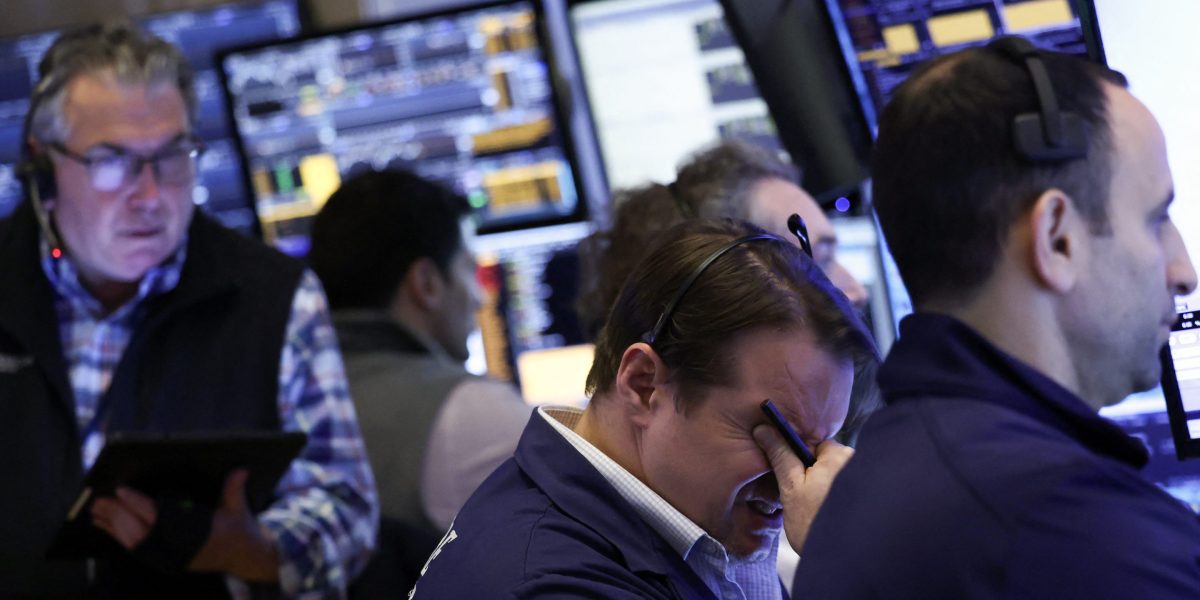A federal judge on Monday paused plans by the Trump administration to end temporary legal protections for hundreds of thousands of Venezuelans, a week before they were scheduled to expire.
The order by U.S. District Judge Edward Chen in San Francisco is a relief for 350,000 Venezuelans whose Temporary Protected Status was set to expire April 7 after Homeland Security Secretary Kristi Noem reversed protections granted by the Biden administration.
Chen said in his ruling that the action by Noem “threatens to: inflict irreparable harm on hundreds of thousands of persons whose lives, families, and livelihoods will be severely disrupted, cost the United States billions in economic activity, and injure public health and safety in communities throughout the United States.”
He said the government had failed to identify any “real countervailing harm in continuing TPS for Venezuelan beneficiaries” and said plaintiffs will likely succeed in showing that Noem’s actions “are unauthorized by law, arbitrary and capricious, and motivated by unconstitutional animus.”
Chen, who was appointed to the bench by President Barack Obama, a Democrat, said his order in the lawsuit brought by the National TPS Alliance applies nationally. Noem had also announced the end of TPS for an estimated 250,000 additional Venezuelans in September.
The judge gave the government one week to file notice of an appeal and the plaintiffs one week to file to pause for 500,000 Haitians whose TPS protections are set to expire in August. Alejandro Mayorkas, the previous secretary, had extended protections for all three cohorts into 2026.
“Today is a good day for the migrant community in this country,” said Pablo Alvarado, co-executive director of the National Day Laborer Organizing Network.
He said that people fleeing war-torn El Salvador who initially benefited from the TPS program fought to maintain protections that came to include countries such as Ukraine, Sudan and Syria — and the broader community must continue fighting.
“It takes so much courage to come forward and say, ‘Here I am, and I’m going to fight for this,’” Alvarado said. “We’re not going to throw anyone under the bus. We’re going to fight for everyone because everyone is deserving.”
The Department of Homeland Security did not immediately respond to a request for comment.
Congress created TPS, as the law is known, in 1990 to prevent deportations to countries suffering from natural disasters or civil strife, giving people authorization to live and work in the U.S. in increments of up to 18 months if the Homeland Security secretary deems conditions in their home countries are unsafe for return.
The reversals are a major about-face from immigration policies under former President Joe Biden, a Democrat, and come as Republican President Donald Trump and his top aides have ratcheted up attacks on judges who rule against them, with immigration being at the forefront of many disagreements.
At a hearing last Monday, lawyers for TPS holders said that Noem has no authority to cancel the protections and that her actions were motivated in part by racism. They asked the judge to pause Noem’s orders, citing the irreparable harm to TPS holders struggling with fear of deportation and potential separation from family members.
Government lawyers for Noem said that Congress gave the secretary clear and broad authority to make determinations related to the TPS program and that the decisions were not subject to judicial review. Plaintiffs have no right to thwart the secretary’s orders from being carried out, they said.
But Chen found the government’s arguments unpersuasive and said that numerous derogatory and false comments by Noem — and by Trump — against Venezuelans as criminals show that racial animus was a motivator in ending protections.
“Acting on the basis of a negative group stereotype and generalizing such stereotype to the entire group is the classic example of racism,” he wrote.
Biden sharply expanded use of TPS and other temporary forms of protection in a strategy to create and expand legal pathways to live in the United States while suspending asylum for those who enter illegally.
Trump has questioned the the impartiality of a federal judge who blocked his plans to deport Venezuelan immigrants to El Salvador, levelling his criticism only hours before his administration asked an appeals court to lift the judge’s order.
The administration has also said it was revoking temporary protections for more than 530,000 Cubans, Haitians, Nicaraguans and Venezuelans who have come to the U.S. since October 2022 through another legal avenue called humanitarian parole, which Biden used more than any other president. Their two-year work permits will expire April 24.
This story was originally featured on Fortune.com
Source link


 Entertainment8 years ago
Entertainment8 years ago
 Politics8 years ago
Politics8 years ago
 Entertainment8 years ago
Entertainment8 years ago
 Entertainment8 years ago
Entertainment8 years ago
 Tech8 years ago
Tech8 years ago
 Tech8 years ago
Tech8 years ago
 Tech8 years ago
Tech8 years ago
 Politics8 years ago
Politics8 years ago






